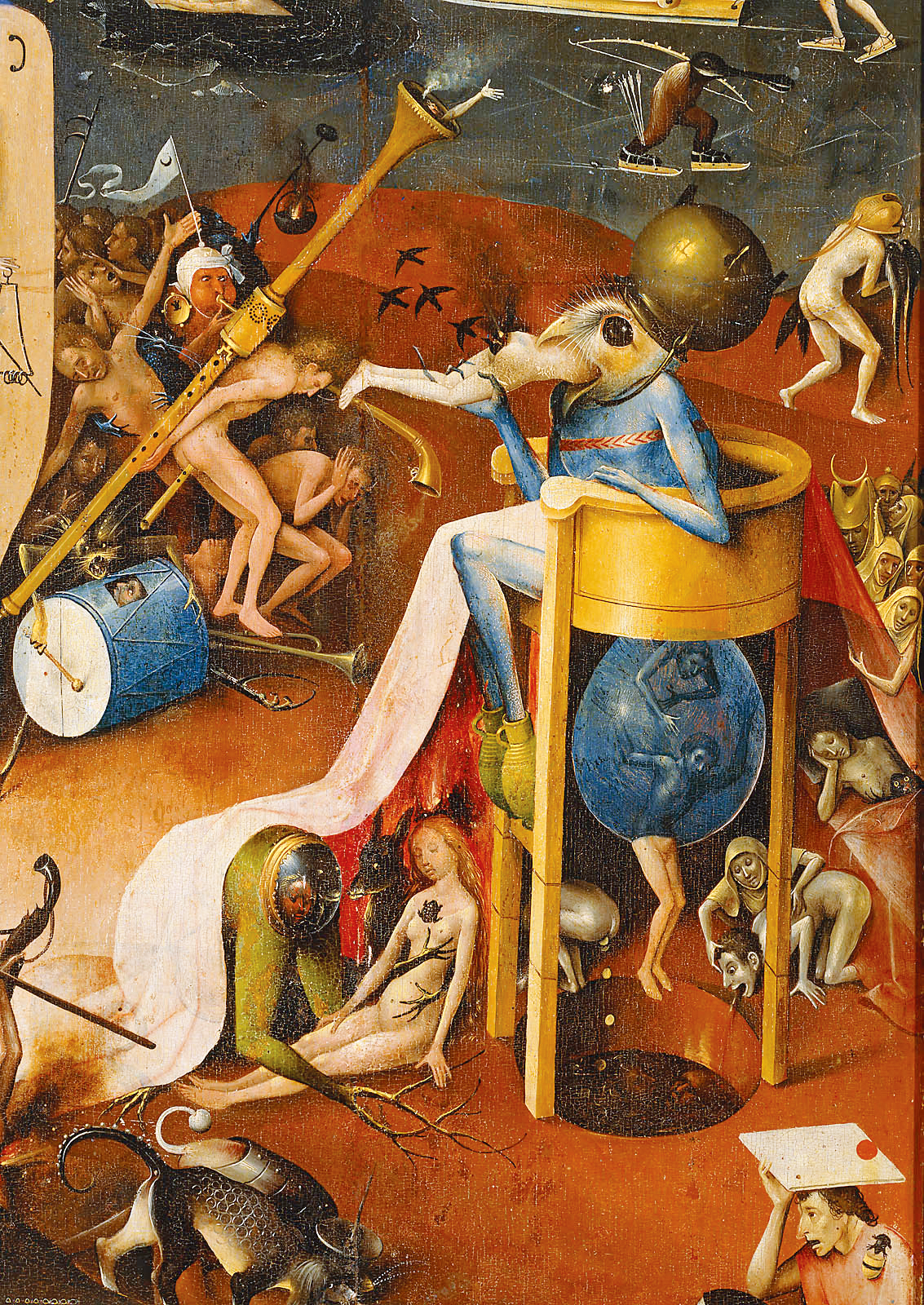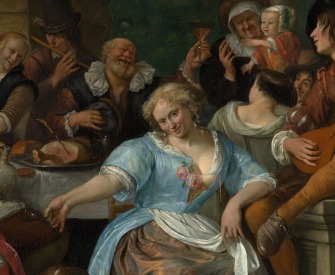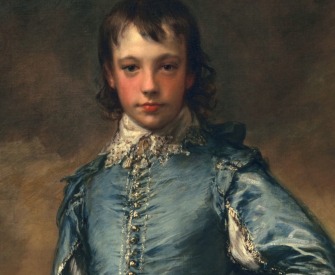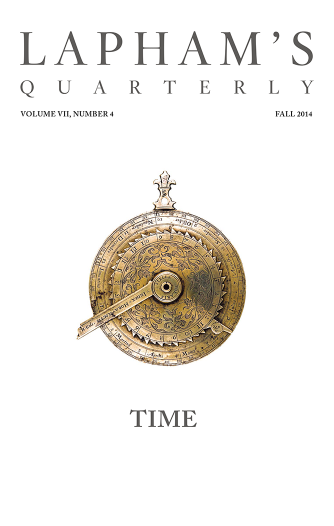Money, not morality, is the principle of commercial nations.
—Thomas Jefferson,Playing the Market
Huck and Jim ponder true wealth.
Jim knowed all kinds of signs. He said he knowed most everything. I said it looked to me like all the signs was about bad luck, and so I asked him if there warn’t any good-luck signs. He says:
“Mighty few—an’ dey ain’t no use to a body. What you want to know when good luck’s a-comin’ for? Want to keep it off?” And he said: “Ef you’s got hairy arms en a hairy breas’, it’s a sign dat you’s a-gwyne to be rich. Well, dey’s some use in a sign like dat, ’kase it’s so fur ahead. You see, maybe you’s got to be po’ a long time fust, en so you might git discourage’ en kill yo’sef ’f you didn’ know by de sign dat you gwyne to be rich bymeby.”
“Have you got hairy arms and a hairy breast, Jim?”
“What’s de use to ax dat question? Don’t you see I has?”

Hell (detail), from The Garden of Delights, by Hieronymus Bosch, c. 1480. Prado Museum, Madrid.
“Well, are you rich?”
“No, but I ben rich wunst, and gwyne to be rich ag’in. Wunst I had foteen dollars, but I tuck to specalat’n’, en got busted out.”
“What did you speculate in, Jim?”
“Well, fust I tackled stock.”
“What kind of stock?”
“Why, livestock—cattle, you know. I put ten dollars in a cow. But I ain’ gwyne to resk no mo’ money in stock. De cow up ’n’ died on my han’s.”
“So you lost the ten dollars.”
“No, I didn’t lose it all. I on’y los’ ’bout nine of it. I sole de hide en taller for a dollar en ten cents.”
“You had five dollars and ten cents left. Did you speculate any more?”
“Yes. You know that one-laigged nigger dat b’longs to old Misto Bradish? Well, he sot up a bank, en say anybody dat put in a dollar would git fo’ dollars mo’ at de en’ er de year. Well, all de niggers went in, but dey didn’t have much. I wuz de on’y one dat had much. So I stuck out for mo’ dan fo’ dollars, en I said ’f I didn’ git it I’d start a bank mysef. Well, o’ course dat nigger want’ to keep me out er de business, bekase he says dey warn’t business ’nough for two banks, so he say I could put in my five dollars en he pay me thirty-five at de en’ er de year.
“So I done it. Den I reck’n’d I’d inves’ de thirty-five dollars right off en keep things a-movin’. Dey wuz a nigger name’ Bob, dat had ketched a wood-flat, en his marster didn’ know it; en I bought it off’n him en told him to take de thirty-five dollars when de en’ er de year come; but somebody stole de wood-flat dat night, en nex’ day de one-laigged nigger say de bank’s busted. So dey didn’ none uv us git no money.”
“What did you do with the ten cents, Jim?”
“Well, I ’uz gwyne to spen’ it, but I had a dream, en de dream tole me to give it to a nigger name’ Balum—Balum’s Ass dey call him for short; he’s one er dem chuckleheads, you know. But he’s lucky, dey say, en I see I warn’t lucky. De dream say let Balum inves’ de ten cents en he’d make a raise for me. Well, Balum he tuck de money, en when he wuz in church he hear de preacher say dat whoever give to de po’ len’ to de Lord, en boun’ to git his money back a hund’d times. So Balum he tuck en give de ten cents to de po’, en laid low to see what wuz gwyne to come of it.”
“Well, what did come of it, Jim?”
“Nuffn never come of it. I couldn’ manage to k’leck dat money no way; en Balum he couldn’. I ain’ gwyne to len’ no mo’ money ’dout I see de security. Boun’ to git yo’ money back a hund’d times, de preacher says! Ef I could git de ten cents back, I’d call it squah, en be glad er de chanst.”
“Well, it’s all right anyway, Jim, long as you’re going to be rich again some time or other.”
“Yes; en I’s rich now, come to look at it. I owns mysef, en I’s wuth eight hund’d dollars. I wisht I had de money, I wouldn’ want no mo’.”

Mark Twain
From the Adventures of Huckleberry Finn. The Samuel Clemens born in Missouri in 1835 piloted Mississippi river steamboats in the late 1850s, helped form (and then dissolve) a Confederate militia, and prospected for gold in Nevada. When he embarked on his career as a writer in the 1860s, he took his pen name from the nautical term for two fathoms.


